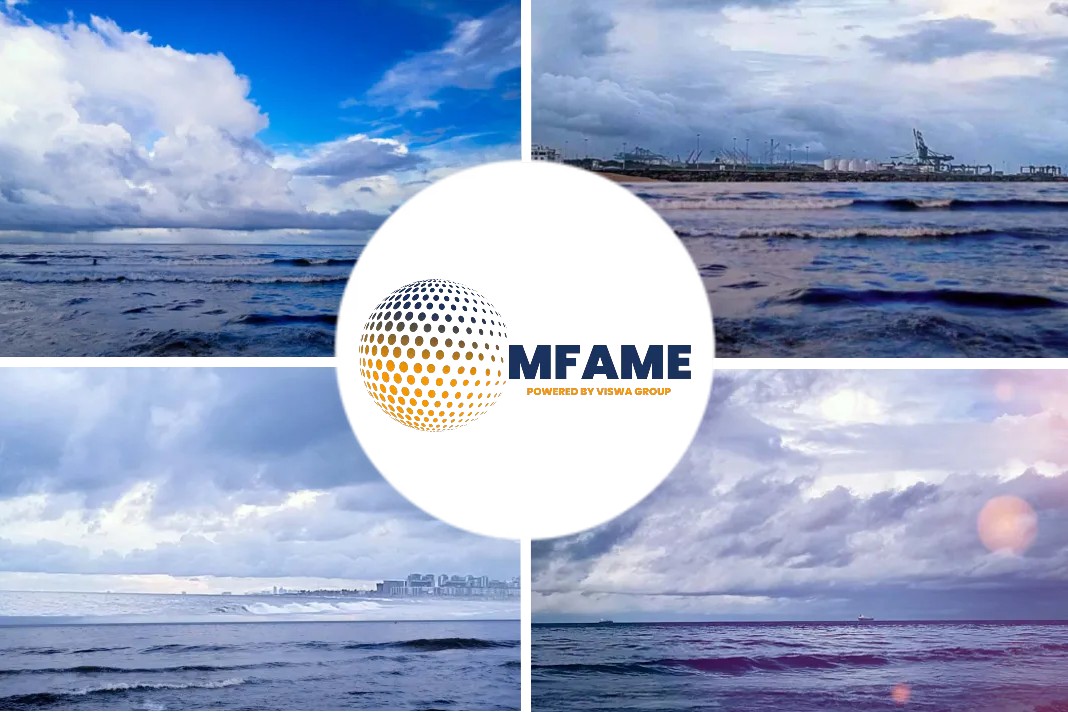- SeaRoad has secured its future growth plan after finalising an agreement with Flensburger Schiffbau-Gesellschaft (FSG) to construct a new roll-on / roll-off (RoRo) vessel with LNG propulsion.
- The new freight vessel will join Searoad Mersey II and replace charter vessel MV Liekut to operate on Bass Strait between Melbourne and Devonport, scheduled for the last quarter of 2023.
Australian-based transport company SeaRoad has secured its future growth plan after finalising an agreement with German shipbuilding yard Flensburger Schiffbau-Gesellschaft (FSG) to construct a new roll-on / roll-off (RoRo) vessel with LNG propulsion worth more than 100 million euros, reports Marine Insight.
Vessel Design & Construction
Construction on the 210-metre-long vessel will commence in late 2021 and the ship will feature the latest technology, including LNG power, as part of SeaRoad’s commitment to sustainable practices. The vessel will have a capacity of 4,227 lane metres and capability to transport heavy cargo with a unit weight of up to 100 tonnes.
SeaRoad Executive Chairman’s Statements
Executive Chairman of SeaRoad, Chas Kelly, says the company is continuously evolving to be the premium freight provider across Bass Strait.
“We’re constantly looking for ways to enhance our logistics solutions for customers and with our investment in this new vessel, the team at SeaRoad is confident in the future of transport between Tasmania and the mainland,” Mr Kelly says.
“At over 40,000 tonnes gross, this will be the largest freight vessel in SeaRoad’s history, continuing to grow our capacity, and providing more options for local agriculture, aquaculture and manufacturing industries.”
“We’ve been very pleased with how our two current FSG-built vessels have performed from both an efficiency and operational perspective. We look forward to continuing our successful relationship with the German shipyard and their experienced staff.”
FSG CEO’s Expression
Philipp Maracke, CEO of FSG, says the company was proud to have brought the business to Flensburg.
“This order by a long-standing customer equals an important vote of confidence in both this new model, as well as our established expertise as an innovative German newbuilding yard. Our aim is to combine superior quality and superior life-cycle value. With this new vessel, FSG and SeaRoad will make an important contribution to sustainable shipping.”
SeaRoad’s Investments
Additionally, SeaRoad has invested significantly in infrastructure and equipment in both Devonport and Port Melbourne over the past 18 months, according to Mr Kelly.
“We’ve invested more than $5 million in equipment to complement terminal activities, purchasing new heavy forklifts, terminal tractors, A-double trailer sets, side loaders, related prime movers and our fleet of rigid trucks.”
“We have also begun a $6 million investment in new technology to streamline and automate our systems and processes. Meanwhile, TasPorts’ East Devonport Port Master Plan will provide the space required for our new vessel,” Mr Kelly says.
Agreement Commencement History
The new build agreement took a year to negotiate with border restrictions requiring SeaRoad and FSG to sign the contract 16,000 km apart during a video call.
FSG built Searoad Mersey II, which joined the fleet in 2016, and constructed MV Liekut, which joined SeaRoad under a three-year charter agreement in April 2021.
| Specifications | LIEKUT | SEAROAD MERSEY II | NEW VESSEL BUILD | ||||
| Length overall | 209.79 m | 182 m | 210 m | ||||
| Breadth, moulded | 26.00 m | 26.60 m | 29.30 m | ||||
| Draught, scantling | 6.40 m | 6.30 m | 6.35 m | ||||
| Deadweight | 11,100 t | 7980 t | 12,183 t | ||||
| Gross Tonnage | 32,887 | 25,490 | 43,100 | ||||
| Freight decks | 4 | 3 | 4 | ||||
| Total lane metres | 4,076 | 2,518 | 4,227 | ||||
| Main engine power | 2 x 9,600kW | 2 x 7,200kW | 2 x 10,300kW | ||||
| Service speed | 21.3kts | 20.5kts | 22.5kts |
Did you subscribe to our daily newsletter?
It’s Free! Click here to Subscribe!
Source : Marine Insight
















